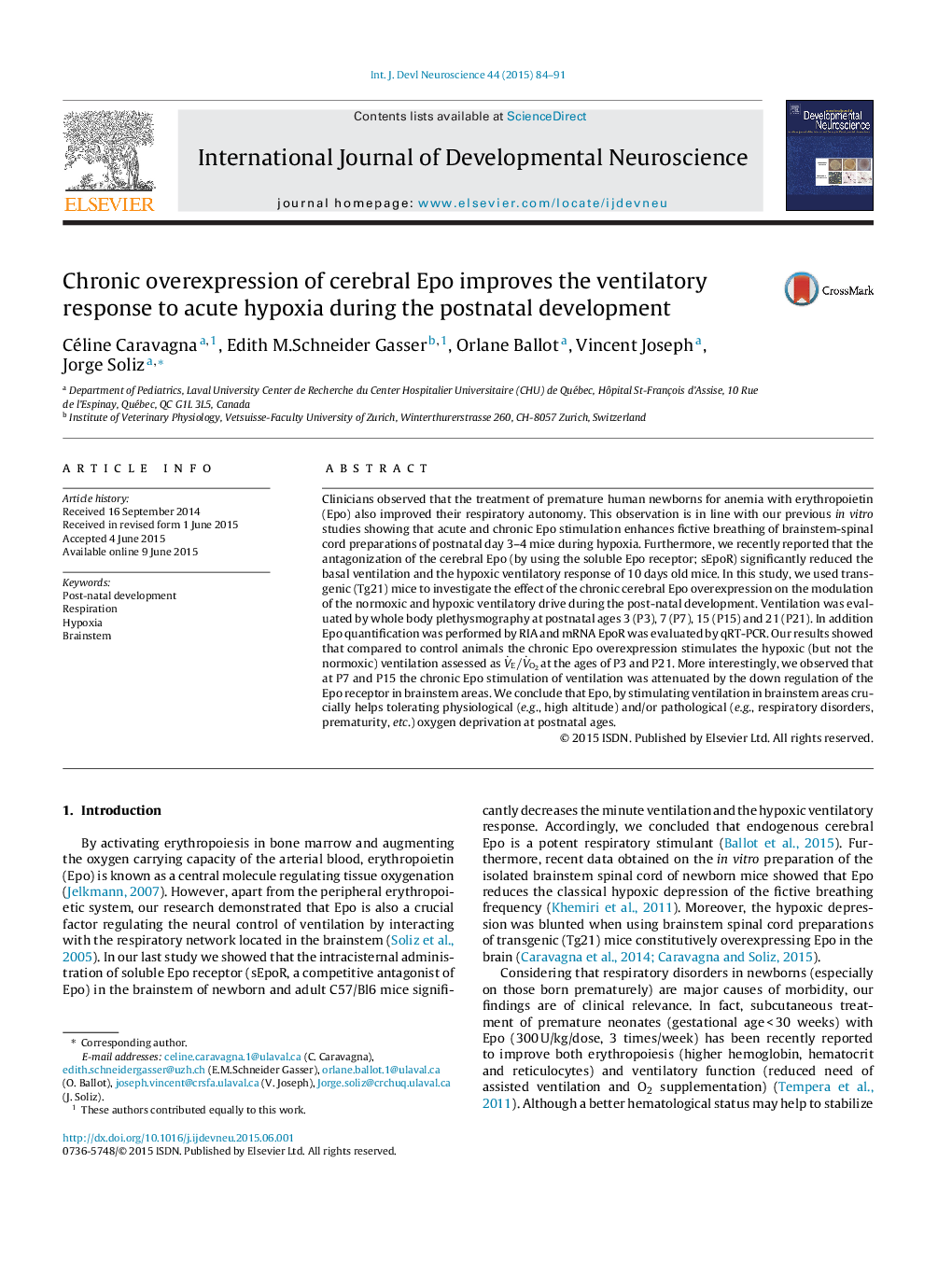| Article ID | Journal | Published Year | Pages | File Type |
|---|---|---|---|---|
| 2785850 | International Journal of Developmental Neuroscience | 2015 | 8 Pages |
•Chronic Epo overexpression does not modulate basal ventilation at postnatal ages.•Chronic Epo overexpression modulates the hypoxic ventilation at very early (P3) and late (P21) postnatal age.•The chronic Epo stimulation is moderated at P7 and P15 by the down regulation of the EpoR expression.
Clinicians observed that the treatment of premature human newborns for anemia with erythropoietin (Epo) also improved their respiratory autonomy. This observation is in line with our previous in vitro studies showing that acute and chronic Epo stimulation enhances fictive breathing of brainstem-spinal cord preparations of postnatal day 3–4 mice during hypoxia. Furthermore, we recently reported that the antagonization of the cerebral Epo (by using the soluble Epo receptor; sEpoR) significantly reduced the basal ventilation and the hypoxic ventilatory response of 10 days old mice. In this study, we used transgenic (Tg21) mice to investigate the effect of the chronic cerebral Epo overexpression on the modulation of the normoxic and hypoxic ventilatory drive during the post-natal development. Ventilation was evaluated by whole body plethysmography at postnatal ages 3 (P3), 7 (P7), 15 (P15) and 21 (P21). In addition Epo quantification was performed by RIA and mRNA EpoR was evaluated by qRT-PCR. Our results showed that compared to control animals the chronic Epo overexpression stimulates the hypoxic (but not the normoxic) ventilation assessed as V˙E/V˙O2at the ages of P3 and P21. More interestingly, we observed that at P7 and P15 the chronic Epo stimulation of ventilation was attenuated by the down regulation of the Epo receptor in brainstem areas. We conclude that Epo, by stimulating ventilation in brainstem areas crucially helps tolerating physiological (e.g., high altitude) and/or pathological (e.g., respiratory disorders, prematurity, etc.) oxygen deprivation at postnatal ages.
